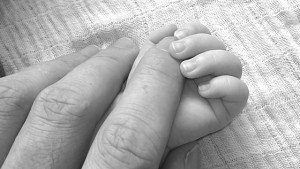
Percocet is a commonly prescribed narcotic pain reliever. At times it may be prescribed postpartum, mainly for mothers with a C-Section or those with complications or tearing. Before taking this medication, it’s critical that the consumer use extreme caution, due to the serious side effects and risks associated with this narcotic analgesic for both mothers and their breastfeeding newborns.
Though there is a rising awareness in the medical community about the dangers of these types of medications, the patient must be aware and thoughtful prior to consumption, as not all physicians prescribe with caution. Some physician may not be of mounting research that is showing increased dangers of Opioid use during and after pregnancy. (1)
Quick Facts on Percocet
What is Percocet? Percocet is a prescribed narcotic analgesic (pain reliever) that contains a combination of oxycodone and acetaminophen. Often, non-narcotic drugs (like acetaminophen) are added to narcotics (like oxycodone) to increase analgesic properties in a process known as drug synergy.(1) Percocet is in the Opioid family of drugs, same as:
- Heroin
- Morphine
- Codeine
- Hydrocodone
- Oxycontin
- Hydromorphone
- Oxycodone
- Etc.
It’s often thought of as a “safer” option due to being combined with a non-narcotic like acetaminophen. However, it is just as addictive and has the same side effects as other opioid medications. Furthermore, physician are most likely to prescribe Percocet due to old research that reported it does not pass through breastmilk.

More current research has shown mounting evidence that this is not true, and opioid medications as well as acetaminophen do pass through breastmilk to a nursing baby. (2)
How does this medication work? Opioids (like Percocet) act by attaching to specific proteins called opioid receptors, which are found in the brain, spinal cord, gastrointestinal tract, and other organs in the body. When these drugs attach to their receptors, they reduce the perception of pain.
Opioids can also produce drowsiness, mental confusion, nausea, constipation, and, depending upon the amount of drug taken, can depress respiration. Some people experience a euphoric and calming response to opioid medications, since these drugs also affect the brain regions involved in reward. Those who abuse opioids may seek to intensify their experience by taking the drug in ways other than those prescribed. (3)
Effects of Percocet
Percocet is most beloved for its temporary effectiveness on numbing pain in the body. One of the most important side effects postpartum women need to consider is this drug’s effect on their healing body as well as their newborn.
“Maternal use of oral narcotics during breastfeeding can cause infant drowsiness, central nervous system depression and even death. Infant sedation is common and well documented with maternal use of oxycodone.
Newborn infants seem to be particularly sensitive to the effects of even small dosages of narcotic analgesics. Once the mother's milk comes in, it is best to provide pain control with a nonnarcotic analgesic and limit maternal intake of oral oxycodone (and combinations) to a few days.
A maximum oxycodone dosage of 30 mg daily is suggested. Other agents are preferred over oxycodone during breastfeeding”. (2)
Percocet Abuse and Addiction
Percocet, also called “White Collar Heroin”, like others in its opiate drug family, is highly addictive. It is a drug on which our bodys quickly and easily becomes physically dependent. One of the most common mistakes patients make leading them to addiction to prescriptions is thinking that because it’s prescribed it’s “safe”.

Moreover, because I’m taking it as prescribed its “safe”. Wrong! Anyone who takes opioid medications regularly for more than a few days, has a probability of attaining some physical dependency.
For postpartum women, addiction potential can be increased due to the intensity of emotions and vulnerability during that time. Prescription drug abuse and addiction can follow a simple train of events like this:
A pregnant mother has a C-section. This was unexpected and not part of her birth plan, for that she is grieving her inability to have her baby naturally. It was a traumatic birth experience.
She is prescribed Percocet as means of pain control from her healing incision. While in the hospital she is given Percocet every 4-6 hours upon her request. It is effective in helping decrease her pain enough for her to sleep and enjoy her newborn.
She is experiencing significant abdominal pain and cramping, and so she does ask her nurse for her does nearly every 4 hours. She may not realize it but taking this medication gives her a sense of control over her body, which was seemingly taken from her during her labor experience.
She is sent home from the hospital after a few days with a week’s worth of Percocet and a newborn to boot. She gets home and begins to feel tremendously overwhelmed. Between nursing her infant, and physical pain of her incision she hardly sleeping.
In fact, now being home her pain seems to have increased due to “doing more” than when in the hospital. She continues taking Percocet every 4 hours as prescribed. By the third day home, the Percocet seems to not be helping as much as at first.
She decides to take it a bit early, moving to every 3 hours. This doesn’t seem to help so she takes an extra half pill every 3 – 4 hours. Before long the prescribed amount from the hospital is gone.
Her husband has an old prescription from a knee injury a few months back, she decides to use this since she is still in pain, and it’s helping…the misuse or abuse is now in play, from here her use only increases and justifications and denial about dependency build.
She tells herself its safe, it’s prescribed, the doctor wouldn’t give it to me if it weren’t ok. Within a few weeks she notices that she becomes agitated, itchy, sweaty and shaky when she misses a dose. She has become physically dependent to Percocet.
Symptoms of Percocet Abuse
The symptoms of Percocet abuse will vary among individuals based upon length of time the individual has been abusing Percocet, the amount of the narcotic taken, as well as other drugs that are mixed with Percocet. The most common symptoms of Percocet abuse include:
Mood symptoms:
- Irritability
- Decreased sense of emotional well-being
- Feeling numb
- Depression
- Anxiety
Behavioral/Psychological symptoms:
- Agitation
- Aggression
 Perception of needing the drug
Perception of needing the drug- Desire for more of the drug
- Drug seeking (eventually this can lead to doctor shopping and/or frequent doctor visit with physical ailments, use of another’s prescription)
- Social/family withdrawal or isolation
- Buying prescriptions online or disregard for medical advising
- Defensiveness about use
- Loss of interest in life events/activities
Physical symptoms:
- Fatigue
- Llethargy
- Gastrointestinal issues
- Physical pain from withdrawal
- Impotency
- Excessive sleeping
- Dizziness
- Decreased cardiovascular function
Withdrawal from Percocet
 Withdrawal from Percocet does not just occur in individuals who abuse Percocet, but also those who take this narcotic exactly as directed by the doctor.
Withdrawal from Percocet does not just occur in individuals who abuse Percocet, but also those who take this narcotic exactly as directed by the doctor.
Withdrawal from Percocet should always be done with the supervision of a doctor and trained medical staff in a safe environment to prevent further complications.
Effects of withdrawal typically begin within several hours of the last dose and tend to increase in severity over the next several days. Within a few weeks, the withdrawal effects from Percocet should cease altogether.
Withdrawal symptoms include:
- Whole body pain
- Diarrhea
- Abdominal cramping
- Extreme sweating
- Nausea and vomiting
- Insomnia
- Anxiety
- Decreased appetite
- Body chills
- Goosebumps
- Muscle spasms and cramps
- Paranoia
- Tachycardia
- Pupil dilation
- Hyperactivity
- Major depression
- Agitation
- Aggression (4)
What’s a mother to do?
There are times when opioid use is just necessary. A brand new mama, just had her abdomen sliced open and a baby removed…she likely needs some pain relief. However, one should use caution and keep some factors in mind. Here are five keys to safeguarding against misuse of narcotics.
- Try non-narcotic options FIRST. And continue trying non-narcotic options continuously until no longer using narcotics.
- Use should be short term (7 – 10 days max) and minimal dosage.
- Understand and have a mindset that is focused on pain management, rather than pain numbing. The goal is to not eliminate pain, but rather, accept pain as a part of healing.
- Have a spouse or trusted loved one monitor use once home from hospital.
- Never, under any circumstance, use anyone else’s prescription. And safely discard old prescriptions immediately. (ask your pharmacist for your local depository location)
References:
1. Drugs.com. “Acetaminophen / oxycodone Pregnancy and Breastfeeding Warnings”.
2. Sachs HC and the American Academy of Pediatrics committee on Drugs. The transfer of drugs and therapeutics into human breast milk: An update on selected topics. Pediatrics. 2013;132:e796-809.
3. NIDA. http://www.drugabuse.gov/publications/research-reports/prescription-drugs/opioids/how-do-opioids-affect-brain-body.
4. http://www.blueridgemountainrecovery.com/prescription-drugs/percocet/signs-symptoms-effects
About the author:
 About the author: Brie Morzov, is a Licensed Clinical Social Worker in Oregon. She has worked in the field of addiction treatment and prevention for the past decade and continues to work as a therapist and author. She has a passion for helping hurting people heal and find their highest self.
About the author: Brie Morzov, is a Licensed Clinical Social Worker in Oregon. She has worked in the field of addiction treatment and prevention for the past decade and continues to work as a therapist and author. She has a passion for helping hurting people heal and find their highest self.
The opinions and views of our guest contributors are shared to provide a broad perspective of addictions. These are not necessarily the views of Addiction Hope, but an effort to offer discussion of various issues by different concerned individuals.
We at Addiction Hope understand that addictions result from a combination of environmental and genetic factors. If you or a loved one are suffering from an addiction, please know that there is hope for you, and seek immediate professional help.
Updated & Reviewed By: Jacquelyn Ekern, MS, LPC on February 29, 2016
Published on AddictionHope.com
